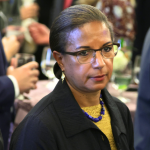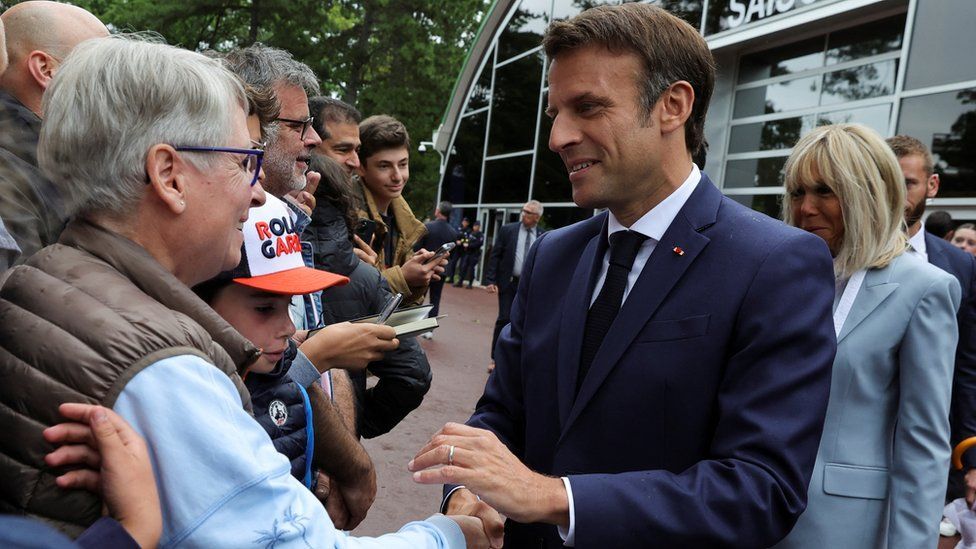French President Emmanuel Macron has rejected a resignation offer from Prime Minister Elisabeth Borne before talks with the opposition seeking to end the deadlock sparked by his failure to secure a majority in parliamentary elections.
The development came on Tuesday as Macron was due to host far-right leader Marine Le Pen and other political party chiefs for rare talks at the Elysee Palace as he seeks solutions to an unprecedented situation that risks plunging his second term into crisis two months after it began.
The Elysee said Borne, blamed by some analysts for heading a lacklustre campaign, had offered her resignation to Macron but the head of state turned it down.
Macron believes the government needs to “stay on task and act” and the president will seek “constructive solutions” to the political impasse in talks with opposition parties, said a presidential official, who asked not to be named.
Macron is due to start Tuesday’s flurry of discussions by talking with Christian Jacob, the head of the traditional right-wing Republicans (LR), a party on the decline in recent months but which now may be courted by the president to give him a majority.
Socialist Party leader Olivier Faure and Communist Party boss Fabien Roussel – members of the NUPES left-wing alliance – will also meet Macron, although the hard-left leader Jean-Luc Melenchon is not scheduled to do so.
And in a rare encounter, Macron will at 17:30 Paris time (15:30 GMT) host Le Pen, his rival in presidential elections and leader of the far-right National Rally (RN).
The aim is to “build solutions to serve the French” at a time when there is no “alternative majority” to that of Macron’s ruling alliance, said the Elysee.
While Macron’s Ensemble (Together) coalition remains the largest party after Sunday’s National Assembly elections, it fell dozens of seats short of keeping the absolute majority it has enjoyed for the last five years.
Melenchon and Le Pen made big gains, leaving them as major players in the new parliament.
Macron’s Together alliance won 244 seats, well short of the 289 needed for an overall majority, in a low-turnout vote that resulted in an abstention rate of 53.77 percent.
The election saw NUPES become the main opposition force along with its allies on 137 seats, according to interior ministry figures.
But it appears unlikely the coalition of Socialists, Communists, Greens and the hard-left France Unbowed will be able to retain common cause in the legislature.
Melenchon, the France Unbowed chief who orchestrated the alliance, called its results “fairly disappointing” and proposed on Monday to make NUPES a permanent left-wing bloc.
He said it would not be a full-on merger but simply an effective “alternative” force in parliament, though the offer was immediately rejected by the three other NUPES parties.
Meanwhile, the far right under Le Pen posted the best legislative performance in its history, becoming the strongest single opposition party with 89 seats, up from eight in the outgoing chamber.
A confident Le Pen said her party would demand to chair the National Assembly’s powerful finance commission, as is tradition for the biggest opposition party.
No confidence
Melenchon said he would bring a motion of no confidence against Borne in early July when she is to lay out her policy priorities for the next five years.
Even if Borne will stay in her post for now, a cabinet shake-up is on the horizon.
Macron’s health and environment ministers were beaten and by tradition will have to resign, as did the parliament speaker and the head of Macron’s parliament group.
The options available to Macron range from seeking to form a new coalition alliance, passing legislation based on ad hoc agreements, or even calling new elections.
One option would be an alliance with the Republicans, which has 61 MPs. But LR president Jacob has insisted his party intends to “stay in opposition”.
“What can he (Macron) do now?” said the headline in the Le Parisien daily. “Macron in an impasse, NUPES already divided,” added Le Figaro.
Macron had hoped to mark his second term with an ambitious programme of tax cuts, welfare reform and raising the retirement age. All that is now in question.
Story cited here.
























